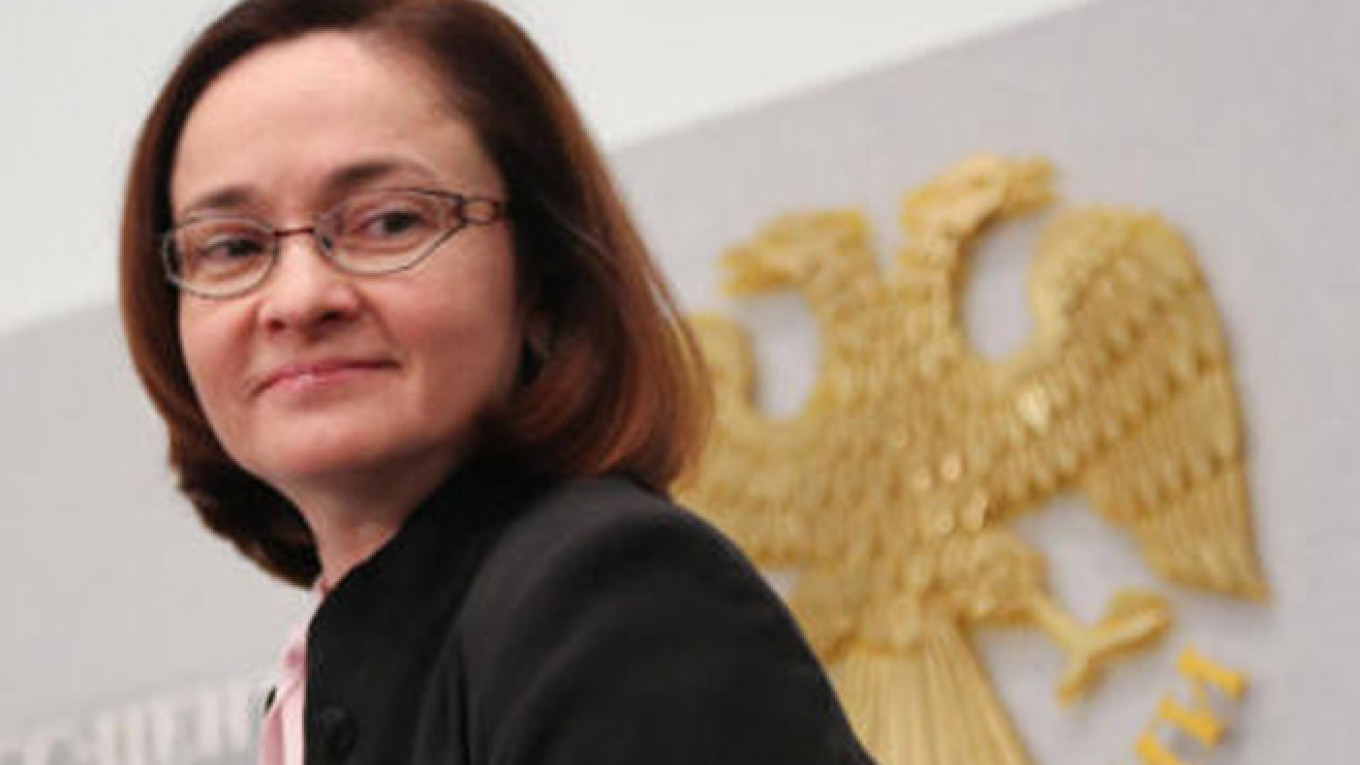Russia's Central Bank said Wednesday that economic growth would "most probably" fall below 1 percent in 2014 and it was also concerned about above-target inflation that constrains its ability to cut interest rates.
Despite the economic slowdown, Central Bank governor Elvira Nabiullina said the bank did not plan to cut its key lending rate from 7 percent until its June meeting at the earliest.
The combination of stagnating growth and high inflation underscores the debilitating impact that international tensions around Ukraine are having on Russia's poor economic health.
It also highlights the dilemmas the Central Bank faces as it struggles to reassure markets by stabilizing the ruble — contradicting its long-term policy goal of letting the exchange rate find its own level.
Nabiullina told a Moscow banking conference that the bank's previous 2014 growth forecast in the range of 1.5 to 1.8 percent was now unlikely to be met.
"More probable is a reduction in the growth rate to a level below 1 percent," she said.
The bank is just the latest organization to slash its growth forecast, as the deterioration of East-West relations provoked by the Ukraine crisis exacerbates a slump in investment and an outflow of capital.
Economists polled by Reuters last week cut their average 2014 growth forecast to 0.8 percent from 1.9 percent.
The Central Bank raised its key lending rate to 7 percent from 5.5 percent a month ago to protect the ruble when markets took a pounding on the first day of trading after President Vladimir Putin declared Russia's right to invade Ukraine.
Nabiullina said the rate would remain in place at least until June: "A signal was given at the March 14 board of directors' meeting that [the rate] will not be reduced during the coming months — at the very least until the June meeting."
The bank's next meetings to discuss monetary policy are scheduled for April 25 and June 16.
A Message from The Moscow Times:
Dear readers,
We are facing unprecedented challenges. Russia's Prosecutor General's Office has designated The Moscow Times as an "undesirable" organization, criminalizing our work and putting our staff at risk of prosecution. This follows our earlier unjust labeling as a "foreign agent."
These actions are direct attempts to silence independent journalism in Russia. The authorities claim our work "discredits the decisions of the Russian leadership." We see things differently: we strive to provide accurate, unbiased reporting on Russia.
We, the journalists of The Moscow Times, refuse to be silenced. But to continue our work, we need your help.
Your support, no matter how small, makes a world of difference. If you can, please support us monthly starting from just $2. It's quick to set up, and every contribution makes a significant impact.
By supporting The Moscow Times, you're defending open, independent journalism in the face of repression. Thank you for standing with us.
Remind me later.






